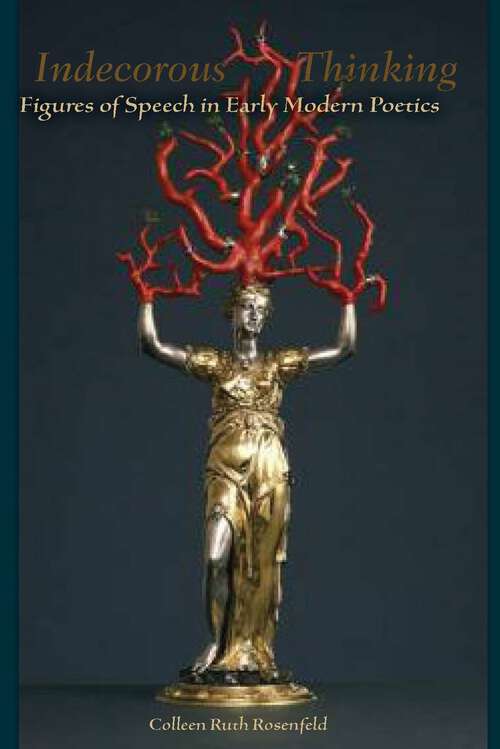
Indecorous Thinking: Figures of Speech in Early Modern Poetics
General non-fiction, Criticism
Synthetic audio, Automated braille
Summary
Indecorous Thinking is a study of artifice at its most conspicuous: it argues that early modern writers turned to figures of speech like simile, antithesis, and periphrasis as the instruments of a particular kind of thinking unique to the emergent… field of vernacular poesie. The classical ideal of decorum described the absence of visible art as a precondition for rhetoric, civics, and beauty: speaking well meant speaking as if off-the-cuff. Against this ideal, Rosenfeld argues that one of early modern literature's richest contributions to poetics is the idea that indecorous art—artifice that rings out with the bells and whistles of ornamentation—celebrates the craft of poetry even as it expands poetry’s range of activities. Rosenfeld details a lost legacy of humanism that contributes to contemporary debates over literary studies’ singular but deeply ambivalent commitment to form. Form, she argues, must be reexamined through the legacy of figure. Reading poetry by Philip Sidney, Edmund Spenser, and Mary Wroth alongside pedagogical debates of the period and the emergence of empiricism, with its signature commitment to the plain style, Rosenfeld offers a robust account of the triumphs and embarrassments that attended the conspicuous display of artifice. Drawing widely across the arts of rhetoric, dialectic, and poetics, Indecorous Thinking offers a defense of the epistemological value of form: not as a sign of the aesthetic but as the source of a particular kind of knowledge we might call poetic.